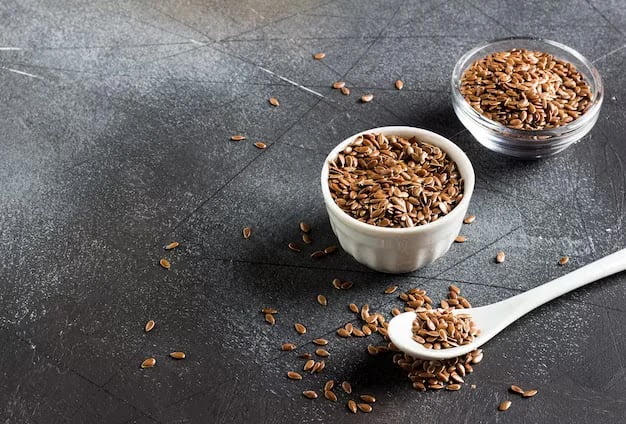The Nutritional Powerhouse: Spinach
What is Spinach?
Spinacia oleracea, commonly known as spinach, is a leafy green vegetable that belongs to the Amaranthaceae family. It has been grown for thousands of years and is thought to have originated in ancient Persia. The vibrant green leaves with a slightly bitter taste make spinach a versatile ingredient in many cuisines worldwide.
Spinach’s Rich Nutritional Profile
Don’t let its appearance fool you: spinach is a nutritional powerhouse. It is low in calories but rich in essential vitamins, minerals, and antioxidants. A single cup of cooked spinach contains just 41 calories but provides high amounts of vitamin K, vitamin A, vitamin C, folate, iron, and calcium, among others.
Vitamins and Minerals in Spinach
Spinach is, in truth, a storehouse for vitamins and minerals that foster general health. Vitamin K content is high to clot the blood and maintain bone density. Spinach contains vitamin A and vitamin C, which serve important purposes in maintaining healthy skin, preventing infections, and keeping sight sharp. Folate, iron, magnesium, and calcium can be found in spinach and thus are essential for various body functions.
Antioxidants in Spinach
Antioxidants are great chemicals that protect our cells from being damaged by the harmful molecules referred to as free radicals. The antioxidants in Spinach include beta-carotene, lutein, zeaxanthin, and chlorophyll. These help neutralize free radicals while reducing the risk of chronic diseases, such as cancer, heart disease, and age-related macular degeneration.
Health Benefits of Spinach
Remember how Popeye would eat a can of spinach for a quick strength and vision boost? Well, it seems that spinach can help your eyes too. It contains antioxidants called lutein and zeaxanthin, which have been shown to protect the eyes from destructive light and age-related macular degeneration and cataracts. Adding spinach to your diet may keep your vision sharp and healthy well into old age.
Supports Bone Health
Building strong bones requires more than just calcium. Spinach is rich in vitamin K, an essential nutrient for maintaining bone health. Vitamin K helps activate osteocalcin, a protein that regulates calcium binding in bones. Therefore, adding spinach to your diet will strengthen your bones and help prevent osteoporosis.
Boosts Immunity
A strong immune system is needed to fight off infections and diseases. Spinach, with rich vitamin and antioxidant content, plays a significant role in immunological strengthening. Vitamin C enhances the production of white blood cells, thus forming a better defense mechanism against the body. Antioxidants in spinach also reduce the inflammation process, which leads to the promotion of general immunity.
Aids Digestion
If you cannot digest well, then spinach can become your best friend. Such a leafy green is great for dietary fiber that maintains proper digestive health. Fiber inside spinach prevents constipation while promoting regular bowel movements, keeping healthy gut microbiomes. These will help to keep your gut running smoothly with spinach consumption.
Promotes Heart Health
Cardiovascular diseases are among the main causes of death worldwide. Fortunately, spinach plays a part in keeping your heart healthy. Nitrates in spinach can ease the blood vessels and help in reducing blood pressure while promoting increased blood flow. Furthermore, spinach’s antioxidants, like lutein, prevent the oxidation of cholesterol, hence lessening the risk of getting heart disease. The inclusion of spinach in your meals will promote a healthy heart.
Spinach and Weight Loss
Low-calorie and High Nutrient Content
A real superstar when it comes to shedding pounds and improving overall health, spinach is densely packed with essential nutrients despite its low-calorie content, making it the perfect addition to weight loss diets. Through eating spinach, one can get all the essential vitamins and minerals without reducing their caloric intake to provide the body with the necessary nourishment while reducing energy consumption.
High Fiber Content
Fiber is synonymous with satiety, and spinach boasts an exceptional fiber content. Therefore, consuming fiber-rich foods such as spinach makes you feel fuller for longer and reduces unnecessary snacking. In addition, fiber promotes good digestion, prevents constipation, and is helpful in maintaining weight. Including spinach in your diet will help you maintain a healthy weight.
Satiety and Reduced Cravings
Ever felt that constant hunger for food that always seems to derail your weight loss plans? Spinach can be a secret weapon against such cravings. The high fiber content in spinach, combined with its density, keeps you feeling fuller for a longer period of time. This helps in reducing hunger pangs and preventing frequent snacking, which can help you stay on track with your weight loss goals.
Preparing and Incorporating Spinach into Your Diet
Selection and Storage Tips
The proper selection and storage of spinach are crucial steps to preserve its freshness and maximize nutrient content. When purchasing spinach, look for fresh leaves that have a deep, lively green color and no wilting or yellowing. Second, wash the spinach properly, then refrigerate it in an open bag to keep it crispy for up to five days.
Cooking Spinach for Maximum Benefits
In cooking spinach, its nutritional qualities improve. Lightly steam or sauté cooked spinach to break down most of its oxalic acid contents to make it more easily available for absorption. Nonetheless, avoid overcooking spinach as excessive heat depletes nutrients. Including some small amounts of healthy fats from ingredients like olive oil increases the absorption of fat-soluble vitamins in the spinach.
Adding Spinach to Salads and Smoothies
Salads and smoothies are perfect options to add healthy spinach in your diet. A few handfuls of fresh leaves of spinach can be tossed into your salads, full of colorful vegetables, fruits, and a delicious dressing. For your smoothie, including some spinach could provide an instant splash of green and a boost of vitamins in one shot with a whisper of earthiness without overpowering the flavor.
Sauteed Spinach Recipes
If you love warm meals, you may also love having sautéed spinach. Start by heating some oil or butter in a pan. Then put in your leaves of spinach, and continue sautéing them until they start to wilt. You could then add salt, pepper, herbs, or any other spice to it, and then it can be taken as a side dish or put into pasta and grain dishes and even used inside omelets and frittatas.
Spinach for Different Dietary Needs

Spinach for Vegetarians and Vegans
Vegetarians and vegans can cheer because spinach is an excellent plant-based source of iron, a mineral crucial for the production of red blood cells. Spinach consumed with foods high in vitamin C, such as citrus fruits, improves the absorption of iron. Including spinach in meals helps ensure an adequate intake of iron, a nutrient that is often deficient in vegetarian and vegan diets.
Spinach for Diabetics
Spinach is one of the healthiest vegetables for people who have diabetes. Low-calorie, high-fiber, and nutrient-rich spinach is essential for maintaining an adequate diet for blood sugar regulation. Spinach has a lot of fiber, which slows down glucose absorption in the body to prevent high blood sugar. However, a person with diabetes, they need to consult their healthcare provider and assess their meal to include it.
Spinach for Pregnant Women
Pregnancy is a period when nutrition is pivotal in supporting fetal development and maternal health. Spinach with its folate is of benefit to pregnant women as folate helps in neural tube formation and minimizes the risk of specific congenital defects. The consumption of spinach in meals ensures that an appropriate amount of this nutrient is met during pregnancy. However, for personalized dietary advice, consultation with a healthcare provider is essential.
Spinach Concerns and Precautions
Oxalates and Kidney Stones
Spinach has oxalic acid, a natural compound, which may precipitate calcium oxalate crystals contributing to the formation of kidney stones in susceptible individuals. Therefore, spinach is not specifically the cause of kidney stones but if you have a history of kidney stones or are susceptible, then it is best that you take moderation in its consumption and seek advice from a healthcare provider as to your individual needs.
Allergic Reactions
Individuals who are allergic to other plants, including beets, chard, or quinoa, may also be allergic to spinach. If you know you are allergic to these plants, then be very careful when you eat spinach and observe your body’s response. Allergic reactions to spinach are very rare but can occur in susceptible individuals.
Interactions with Medications
For you, knowing if you can eat spinach based on your drugs is especially important if you have conditions for which you’re on medication such as blood-thinning medications like warfarin, as it could possibly have interactions that affect the said medicines. You would want to discuss these matters with a doctor first in order to adjust accordingly with spinach intake.
Conclusion
Spinach’s vibrant green leaves hide incredible health benefits and a wealth of nutrients. It helps to promote healthy vision, supports bone health, boosts immunity, aids digestion, and even helps with weight loss. Whether added raw or cooked to salads or smoothies or sautéed, spinach is a versatile ingredient that can enhance the nutritional content of any meal. Although spinach has many benefits, one should not forget the issues or precautions related to its consumption. In general, adding spinach to your diet can be a great move toward optimizing your health and well-being.
FAQs
Q: Is spinach a good source of protein?
While spinach contains protein, it is not considered a significant source. It provides about 2.9 grams of protein per cooked cup, making it a good complement to other protein-rich foods in a balanced diet.
Q: Can spinach help with iron deficiency?
Yes, spinach is a decent source of iron. However, its absorption can be hindered by the presence of oxalic acid. Pairing spinach with vitamin C-rich foods can enhance iron absorption.
Q: Is it safe to consume spinach every day?
Q: Can spinach be eaten raw?

.webp)
.webp)

.webp)

